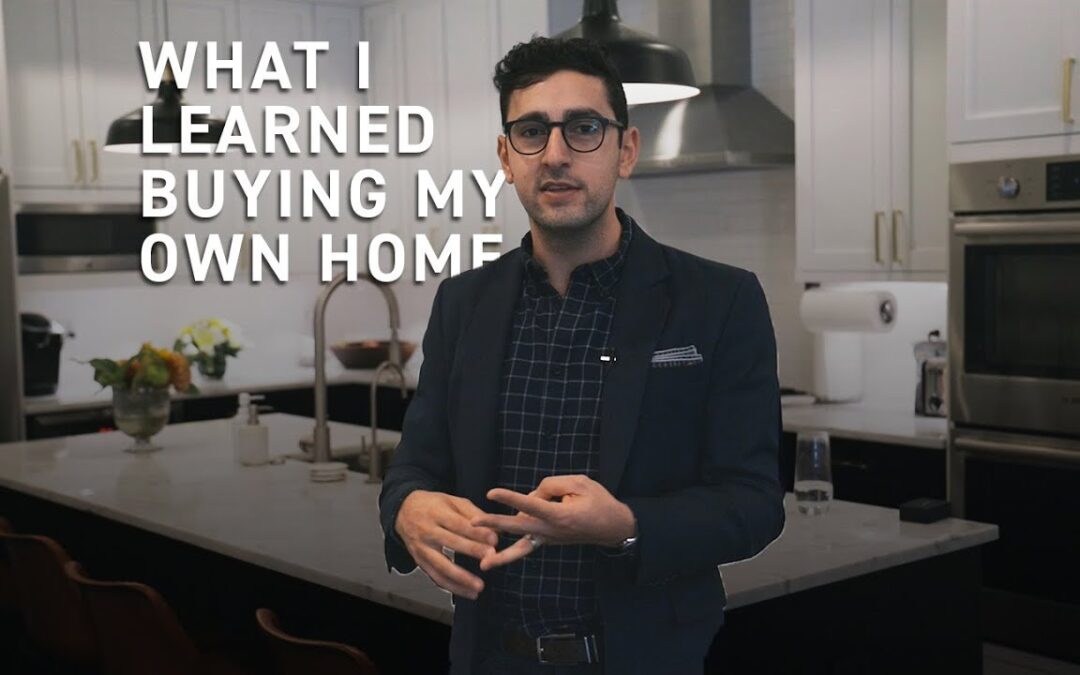As a local Chicago real estate agent I’ve helped hundreds of people buy and sell homes, and I’ve made hundreds of educational videos about real estate. That means buying my own home should be easy peasy, right? Well… yes and no.
So, after buying my current home, I wanted to give people an idea of what my process was like.
Basically, do I practice what I preach?
What was it like for me and my wife, Megan, when we were out there looking for a home?
I’ll begin with our needs. There were a few things that I was really, really looking for.
- A single-family home.
- Location. There were a number of neighborhoods that we were looking at.
- A wider than average lot size – In Chicago, the standard lot is 125×25.
- A house that’s brick all the way around.
- And finally, we really wanted just some semblance of outdoor space or green space.
A short – or sometimes long – list of needs is typically where all buyers start. Generally, the list of needs is the main points, like location and home type, then they trickle down to more detail. I advise my clients to make a list of 3-5 must-haves, with the expectation that anything outside of that list is open for compromise.
In my experience and unique situation, ironically enough, I wish I had a normal broker showing me places. Saying, “Hey, what about this place? What about we go out this weekend?” Kind of managing the whole process.
My wife and I had just gotten married, and I fully underestimated the emotion of it all. When you start looking, it becomes a major part of your life that consumes a good portion of your time with your significant other. That’s all we talked about. And at times, it could get stressful.
Initially, I approached the process like a sharpshooter. “There’s a good place. Let’s go see that one place, Megan.” Then I’d wait a week before something else would come on the market – or potentially off the market – to go again, “let’s go see this place”. I did not approach it the best way because Megan is someone who needs to see a lot of options before she rules it out on her own.
In this regard, if you are buying with a partner – whether they be your life partner or professional partner – it is important to keep both their way of doing things and your way of doing things in mind. Sometimes you’ll need to compromise. Other times you will need to just be respectful and mindful of their way of doing things. And they should show you the same respect.
We eventually found this house. When we walked in, my wife was like, “okay, this is the one.” And I’m like, “yeah, it is!”.
We started the negotiation process, and it was a little difficult not having an agent behind me to tell me the correct offering strategy. When emotions are involved, and this is the house that I had to have, it is difficult. In my mind, there was no way I wouldn’t get it. And that is a terrible, terrible bargaining position. We probably paid a little bit more than I would have liked.
As we moved into the inspection period and attorney review, it was really difficult to step into an objective place and look at things rationally. My wife wants to move into this place. She was already looking at furniture. I could already see myself there. But I was missing that voice to kind of tell me, “no, this is steps A, B, and C. Maybe we should take a step back and let the seller sweat”. We didn’t do that.
It’s important to have someone there to give you a reality check because it really is such an emotional process. A voice of reason is needed.
Finally, my expectation for moving into a relatively new home was that there wouldn’t be much handyman work. The inspector who was there for two or three hours can only catch so much. Rationally I know that, and I tell my clients that, but even my expectation, you know, doing this for a living was a little bit off. I was angry with the seller for not disclosing A, B or C, even though I know it’s not their responsibility to show me everything.
So what can you learn from my experience?
- Don’t underestimate the value of an objective third party. They are the ones who can coach you through these tough situations.
- Perfection is unrealistic. Even a three-year-old house can have its own set of quirks. At the closing table, I always tell my clients, “you’re entering into like a new hobby. You have to enjoy home ownership. And with home ownership comes handymen and contractors coming through, painters, et cetera”.
- Even for me, who does this professionally and every single day, it’s almost impossible to keep emotion out of it. So you have to recognize that and accept it. It’s a roller coaster. You’ll have your highs, and you’ll have your lows. Expect it and enjoy it.


